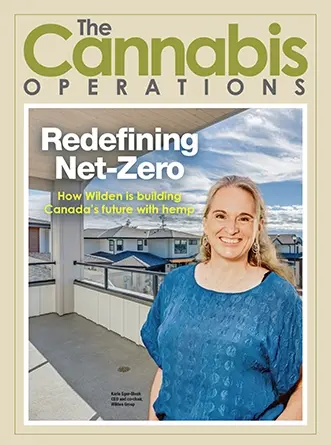Selling a home is more than a financial transaction—it’s a deeply personal decision layered with emotions, expectations, and life transitions. Whether it’s the first house you bought, the one where your children took their first steps, or the property you’ve invested years into improving, listing a home for sale is a journey that carries emotional weight.
Many sellers enter the process thinking only of logistics: pricing, repairs, showings, and closing. But what often surprises them is the rollercoaster of feelings that accompany each stage—from the excitement of putting the home on the market to the uncertainty of offers and negotiations. Recognizing and preparing for the emotional cycle of selling can lead to a more empowered and less stressful experience.
Working with a knowledgeable real estate professional like Mikel DeFrancesco – William Raveis Real Estate ensures you’re not navigating this path alone. Let’s explore the phases many home sellers encounter and how to stay grounded through each one.
Phase 1: The Decision to Sell
The first emotional hurdle is often the hardest: deciding it’s time to sell. Even when the reasons are clear—upgrading, downsizing, relocating—sellers may wrestle with doubt, nostalgia, and fear of change. Homes hold memories and meaning, and parting with them can feel like letting go of a chapter of life.
This phase requires emotional clarity. Sellers benefit from separating sentiment from strategy—acknowledging the emotional ties while focusing on practical motivations. Whether you’re pursuing a lifestyle change or optimizing your financial position, clarity at this stage sets the tone for smoother decision-making later.
Phase 2: Preparing the Home
As soon as the listing process begins, a new emotional layer emerges: letting go of control. Preparing a home for sale means decluttering, depersonalizing, and accepting feedback on updates or improvements. This can be emotionally challenging. A home that once reflected your personality now needs to appeal to someone else’s.
This is also the phase where the concept of Home Seller Listing Representation becomes critical. Having an agent help you prioritize which improvements matter, set market-appropriate expectations, and develop a timeline can ease the anxiety that comes with letting go of control.
Moreover, some sellers feel exposed during this phase. Inviting others into your home—through staging or professional photography—can feel like opening a private space to public scrutiny. Keeping your end goal in mind helps frame this as a step toward progress, not a loss of personal space.
Phase 3: Going Live and Waiting
Once your home is listed, a different emotional tone sets in: anticipation. For some, this brings excitement and confidence. For others, it may cause anxiety, especially if offers don’t arrive right away.
This is where having a strong foundation in Residential Real Estate becomes an advantage. Experienced agents know how to read the market, provide feedback, and advise on whether adjustments are needed. Without this guidance, sellers can spiral into second-guessing the price, condition, or location—often prematurely.
Patience is key during this phase. It’s natural to want quick results, but the market may need time. Every home has its right buyer—it’s often just a matter of aligning timing and visibility.
Phase 4: Receiving Offers and Negotiation
Emotionally, this phase can be a whirlwind. The first offer brings a rush of adrenaline. Whether it’s exactly what you hoped for or far below your expectations, it marks a turning point: you’re closer to letting go.
Some sellers are thrilled by multiple offers; others may feel let down by initial numbers. The negotiation process can also feel surprisingly personal. Sellers often attach value not just to the home, but to the work and time they’ve invested in it. An offer that doesn’t meet those expectations can feel like a rejection—even if it’s not meant that way.
That’s why trusted Home Seller Listing Representation matters most here. A skilled agent can remove emotion from the equation, guiding you through negotiations based on market data, buyer psychology, and legal best practices. They act as a buffer, ensuring decisions are made with clarity, not just emotion.
Phase 5: Inspection and Due Diligence
Even after an offer is accepted, sellers may encounter unexpected emotional swings. Home inspections can be nerve-wracking. Suddenly, a property you’ve lovingly maintained is under a microscope, and the buyer may request repairs or concessions.
This phase can stir feelings of defensiveness or disappointment. It’s helpful to remember that inspections are standard procedure—not personal critiques. Agents like Mikel DeFrancesco – William Raveis Real Estate know how to balance these conversations so that resolutions are fair and the deal stays on track.
It’s also not unusual for buyers to ask for changes or credits that surprise the seller. Knowing when to stand firm and when to compromise is a skill that comes with industry experience—and having the right professional on your side can help protect both your emotional energy and your bottom line.
Phase 6: Closing and Letting Go
The final step in the process is often the most emotional: the actual transition. Signing closing documents and handing over keys can evoke a powerful mix of feelings—relief, pride, sadness, excitement.
For some, this feels like the start of a new chapter. For others, it’s a moment of quiet reflection. Sellers may return to walk through empty rooms one last time or find themselves sentimental over saying goodbye to neighbors. These emotions are valid and worth acknowledging.
This is also when logistics take over again—coordinating movers, final walkthroughs, and timelines. But it’s important not to rush through the emotional side of the experience. Letting go is part of what makes room for new beginnings.
Final Thoughts
Selling a home is never just about bricks and mortar—it’s about memories, milestones, and transitions. Recognizing the emotional phases of the selling journey can help homeowners manage expectations, reduce stress, and embrace the process with greater confidence.
From preparing the property to negotiating offers and closing the deal, the support of an experienced real estate professional can make all the difference. With guidance from experts like Mikel DeFrancesco – William Raveis Real Estate, home sellers can move through each phase with insight, clarity, and a sense of control over both the financial and emotional aspects of the sale.
After all, behind every successful real estate transaction is a story—and understanding that story is key to writing the next one.






























